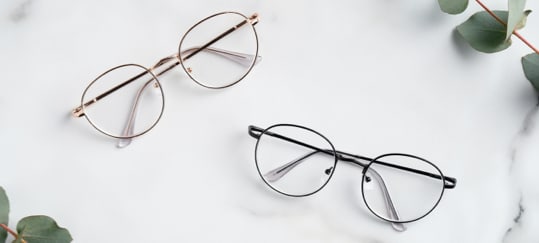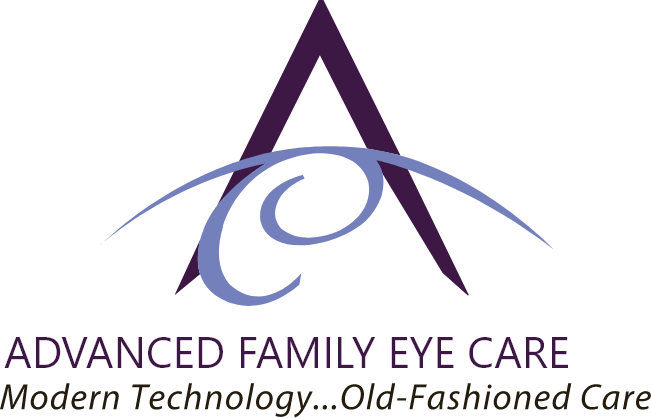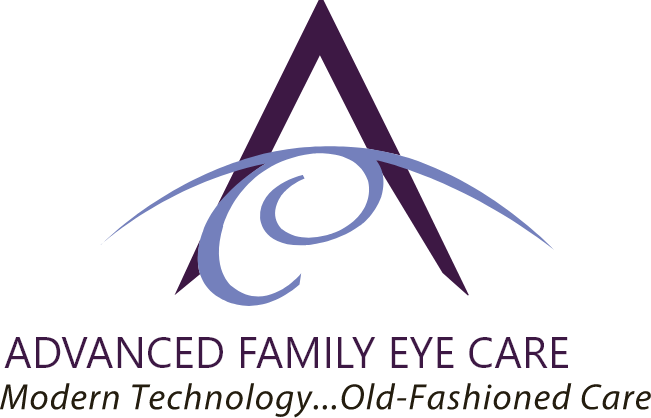A Lifetime of Eye Health & Vision Support
Taking care of your child’s sight starts early in life. With the help of our compassionate staff and comprehensive strategies, we’re proud to be the team your family trusts to support your child’s vision.
Whether we’re providing a lens prescription or addressing an eye health concern, we’re always ready to help. Book an appointment for your little one with the team at Advanced Family Eye Care today.
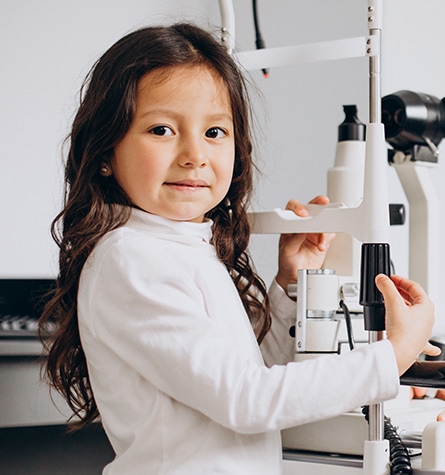

Why Have Regular Eye Exams?
Eye exams for children are just as important as eye exams for adults—if not more so!
Your child relies on their vision as they grow up, but visual impairments and eye conditions can affect their ability to get the most out of their sight. Eye exams can help detect these concerns early in their development while we address them using personalized care strategies and techniques.
From prescribing eyeglasses and contact lenses to managing eye disease, it all starts with an eye exam.
When Should Your Child Have an Eye Exam?
Your child’s eyes are constantly developing throughout their early years. As they grow from babies to toddlers to school-age children, they’ll gain a number of visual skills that’ll serve them as they grow into adulthood.
To help ensure your child’s eyes and vision are developing regularly, we recommend having an eye exam during each of the following milestones. However, we may recommend more frequent eye exams depending on your child’s eye health and vision.
Birth & 2 Years
During this stage of your child’s eye development, their eyes learn to distinguish colors, recognize distances, and differentiate between objects.
At this eye exam, we’ll look for potential issues like amblyopia (lazy eye) and strabismus (crossed eyes).
2 to 5 Years
During your child’s preschool years, they develop a number of vision skills like hand-eye coordination and perception.
Some of the most common issues children can develop at this age include amblyopia (lazy eye) and strabismus (crossed eyes). Still, we’ll also look for other concerns that may affect their quality of life.
After Turning 6
We recommend annual eye exams after your child starts school.
One of the most common concerns school-age children can develop is myopia (nearsightedness). This issue can progress as your child grows up and could affect their ability to read from school boards, watch presentations, or even play sports with friends.
Common Age-Related Eye Conditions
Myopia
Myopia, also known as nearsightedness, is a refractive error that affects your child’s ability to see distances clearly. It is known to start developing in school-age children, but it can progress into adulthood.
While prescription lenses and contacts can help correct your child’s vision, we offer a few different techniques to help manage myopia progression. Please visit our Myopia Control page to learn more!
Amblyopia
Amblyopia, commonly known as lazy eye, is an eye condition characterized by a single drifting eye. It can develop in children for a few different reasons:
- Your child has uneven refractive errors in both eyes.
- Your child has a family history of the condition.
- Your child’s eye muscles aren’t developed enough (amblyopia strabismus)
Without treatment, your child’s brain may begin to favor their “stronger” eye, leading to vision loss in the “weaker” eye. Strategies to treat amblyopia can range from prescription lenses to regular eye exercises, but we always recommend having eye exams so we can detect this issue as early as possible.
Strabismus
Strabismus, also known as crossed eyes, is a condition that affects your child’s eye alignment. It occurs when your child’s eye muscles don’t develop properly, leading to symptoms like double vision, poor depth perception, or even permanent vision loss.
To manage this condition, we can prescribe corrective lenses or recommend various vision exercises. In advanced cases, we may recommend eye muscle surgery.
It can be hard to tell if your child is struggling with their sight, especially if they’re still quite young. However, there are some behavioral signs to look for if you think your child may be developing an eye or vision problem, like:
- Constant eye rubbing
- Poor concentration
- Sitting close to TVs and computer screens
- Regular headaches
- Poor grades at school
If you notice these signs, it might be time to book an eye exam. Some of the most common issues affecting children’s eyes today include myopia, amblyopia, and strabismus.

Compassionate Care Is Only an Appointment Away
Set your child’s sights on a clear, comfortable future.
Find out how the Advanced Family Eye Care team is ready to support your child’s vision and eye development today by booking their appointment.
Our Location
We’re located just off Riverstone Blvd. in The Offices at Riverstone. If you have any trouble finding us, please give us a call.
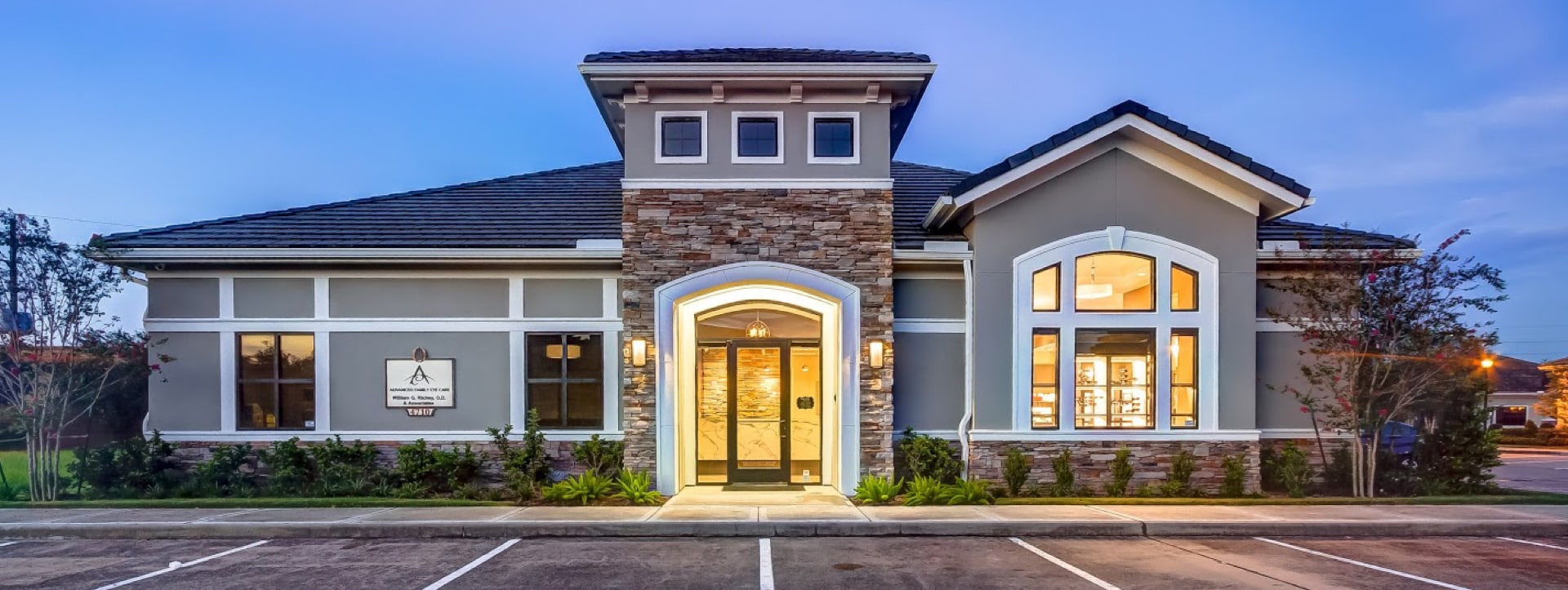
Address
- 4710 Riverstone Blvd.
- Missouri City, TX 77459
Contact Us
- Phone: 281-208-5999
Hours of Operation
- Monday: 9:00 AM – 6:00 PM
- Tuesday: 9:00 AM – 5:00 PM
- Wednesday: 9:00 AM – 6:00 PM
- Thursday: 9:00 AM – 5:00 PM
- Friday: 9:00 AM – 5:00 PM
- Saturday: Closed
- Sunday: Closed

Our Brands

